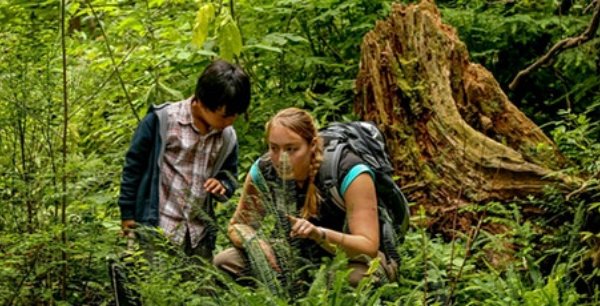In a large urban center like Vancouver, it’s important for the community to place a high value on the preservation of the natural environment. Conservation is more important than ever, and the Stanley Park Ecology Society stands as a shining example for the people of Vancouver to emulate and support. At DP World Canada, our Community Kinship Programme works to spread awareness and appreciation for amazing organizations like Stanley Park Ecology Society, that work to make Vancouver a better place.
Background of the Stanley Park Ecology Society
The Society began in 1988 as the Stanley Park Zoological Society. It provided environmental education and conservation projects for wildlife at risk. In 1995, a city referendum determined that the zoo would not continue on in Stanley Park, but the society remained and rebranded itself as the Stanley Park Ecology Society. Since then, it’s continued doing environmental education and providing conservation projects for more local, regional, wildlife at risk—most specifically, the wildlife that exists in Stanley Park.
Celebrating its 30th anniversary, the Stanley Park Ecology Society now focuses on the three goals of education, research, and conservation action. This summer, its focus has been on educating people on the importance of bird conservation. It offers nature walks through the park and its wetlands to give the people of Vancouver an opportunity to learn about the magnificent birds and flora of the natural Canadian landscape. Over 450 educational opportunities can be found at the park—many of which emphasize real-world conservation efforts like invasive species removal and birdhouse building.
Conservation and Education
Stanley Park serves as a place for researchers to observe and learn more about the land. Professionals and academics often participate in citizen science events such as the Stanley Park BioBlitz, an occasional event that has led to the listing of 143 species new to the park’s “life list.”
Partnering with educational organizations, the Society provides multiple student projects and events for all ages. These events include fun and educational opportunities, such as building “crabitats” and urban camping.
There are approximately 270 bird species (including five families of nesting bald eagles) that have been noted in and through Stanley Park over the years. The Society monitors those populations through the help of volunteers.
Charity Efforts
As a non-profit, the Society offers many opportunities to get involved, both through donations and volunteering. Whether it be:
- Invasive plant removal
- Adopting an acre
- Adopting a heron nest
- Helping out at the annual Vancouver International Bird Festival
There are so many fun and meaningful ways to get involved.
The Stanley Park Ecology Society is also involved with the Vancouver Park Board, serving as advisors for conservation efforts. It often partners with corporate organizations to accomplish habitat renewal (such as island restoration, bird, bat, and bee nest structures, invasive plant removal and native plantings). Other corporate contributions provide children with meals, supplies, tents and other needs for the various camps that are hosted at Stanley Park.
Direct funding to provide subsidies or scholarships for other school programs is crucial, as well as in-kind donations of upgraded computer systems and building materials and tools. These partnerships are so important, and the more support the Society receives, the more of a difference it can make in the greater community.
Vancouver is a city of innovation and opportunity. As it grows, conservation becomes an increasingly important consideration. The Stanley Park Ecology Society tirelessly works to bring private and corporate conservation efforts to fruition. The Society considers the opportunity for individuals to connect with nature to be a matter of emotional well-being—and research supports that notion.
Follow Stanley Park Ecology Society on Twitter for event information and updates, check them out on Facebook for great videos and informational material, and if you’re interested in supporting their work or getting your company involved in volunteer opportunities, visit their website.
